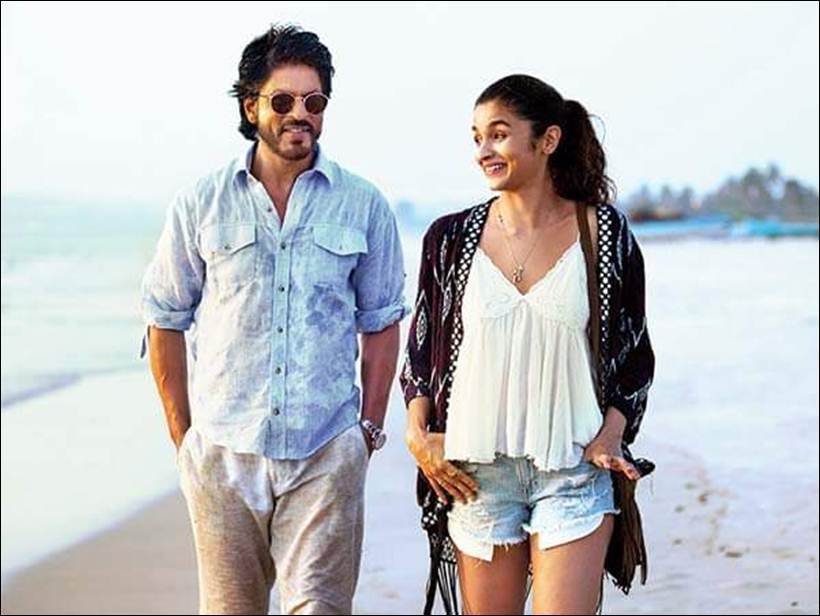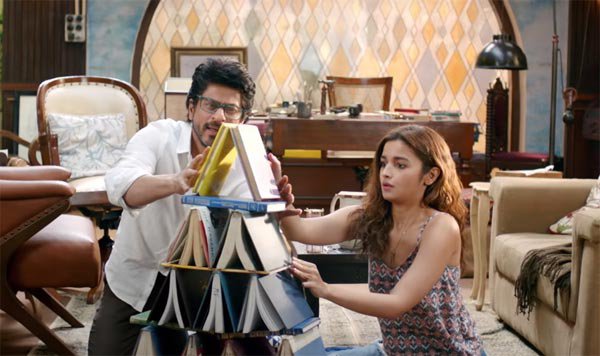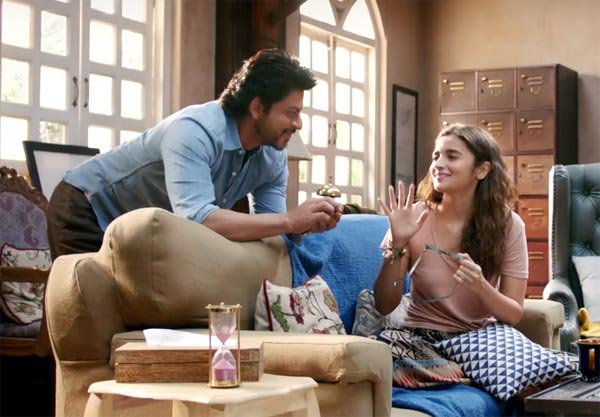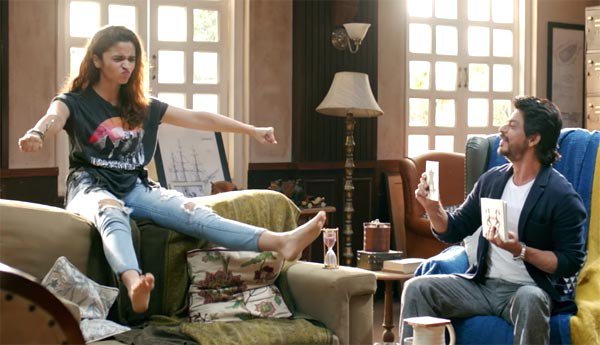As a practising therapist, the very idea that Dear Zindagi deals with emotional wellness and the process of therapy, is heart-warming and a positive step in acknowledging the value of mental health. However, the depiction of the therapist and the relationship with the client sadly defeated the powerful message, leaving moments where all you can hear is preachy messages being doled out by the therapist.
The movie begins on a brilliant note when one of Kaira’s (Alia Bhatt) friends mentions that he has to meet his DD (Dimaag ka Doctor), and his friends laugh about it and ask if he needs therapy because he’s “mad”. His response? “Aren’t all of us crazy?” I think sanity is overrated and every one at different stages needs therapy to find their own self. We need more people to talk about therapy as a part of normal day-to-day conversations, without shame and embarrassment about seeking help.

When Alia asks her friend, “Do you go to therapy so that you can tell everyone that you are gay?” He tells her, “I go for therapy, so that I can tell myself I’m gay”. This moment is so endearing, because so many people choose to be in therapy because it helps them love themselves first and embrace their choices. To introduce this idea, that therapy is a part of our emotional selfcare and we may need it to accept our own self is very powerfully communicated. The sensitivity about homosexuality, openness to talk about it and unconditional support that friends offer creates an enabling context.
Alia’s depiction of Kaira who struggles with mixed emotions when it comes to intimate relationships is portrayed beautifully. She is constantly in a space where she doesn’t allow herself to feel any emotion deeply, her passive-aggressive behaviour, avoidance, disassociating hurt/ sadness are expressed with so much clarity. As a therapist, I hear so many clients tell me that they type out messages, emails to the person who hurt them but don’t send them or in a moment of vulnerability reach out to an ex who seems an easy escape to deal with the overwhelming feelings of hurt, anxiety at being abandoned.

It’s a very realistic depiction of how in today’s times, people engage in a pattern of avoidance, escape and displacing feelings. In the scene, where she breaks a bottle in a store, strong metaphors indicate how her hurt is camouflaged by this overt act of aggression. The act of eating a chilli to numb her feelings of pain when she hears about Kunal Kapoor’s engagement symbolically represents her self-destructive behaviour, aimed at shifting the emotional pain to a physical sensation which also induces tears.
My main problem with the movie is how they have presented a glamourised version of therapy and missed out on the value of professional boundaries which is the foundation of a therapeutic relationship. Shah Rukh Khan’s portrayal of Dr Jehangir Khan as a therapist who holds sessions on the beach while cycling with Alia and then on a ferry seems to provide mixed messages. While he doesn’t seem flirtatious, he seems to be definitely leading Kaira on.

The process of therapy is about enabling clients to find their own answers, by helping them get in touch with their feelings and trusting their inner voice. Shah Rukh Khan asks a lot of Why questions, listens, but is quick to advise and present his own perspective. When Alia talks about her childhood, her turbulent relationship with parents, he announces his interpretation rather than helping her process her own emotions and jumps in too quickly to tell her that she must try and look at her parents differently. More than the therapist’s interpretation, the client coming to see their own experience in a different light is where therapy begins.
In reality, clients take a long time to process their feelings of hurt or abandonment and need to make their own choices about how to resolve these feelings. It is this exact process which prevents them from becoming dependent on the therapist. Which is why informal verbal, nonverbal cues can create a duality where the client starts seeing the therapist as his friend.

The most problematic part was the ending, Jehangir Khan cancels the session at the last minute without informing Alia, and then in the next session announces that the following session will be their last session. It was both odd and unprofessional that it’s not taken into consideration that a client who is struggling with abandonment, may not be prepared for abruptly terminating her therapy sessions or to handle future life situations. What seems as pure power play from Khan’s character, could be dangerous and in conflict with how psychotherapy operates.
While it’s not uncommon for clients to feel a dependency towards their therapist, the goal for the therapist is to gently help clients develop their own success stories, help them love themselves so that they can organically be weaned off therapy. Kaira’s dependency is a reflection of the mixed messages Jehangir as a therapist sends and an inability to help her find her self.
Gauri Shinde is going to be remembered as a filmmaker for acknowledging the role of a therapist, looking at mental health, beyond asylums and mental disorders. Better research and realism could have made Khan’s character come alive with more empathy, unconditional positive regard for Kaira and restraint as a therapist.

We don’t want clients pursuing therapy in the hope that therapy is a quick fix, where therapists give advice and enlighten you with wisdom. As I always say, there is no right or wrong, it is the client who chooses his path and leads the therapy process, while the therapist plays the role of facilitator. All of us like Kaira, in a therapeutic space, are capable of finding our own meaning making and learn to regulate emotions.
While Kaira’s depiction is brilliantly etched in every frame, what we see in Shah Rukh Khan’s character is Shah Rukh Khan himself, not a therapist. His body language, verbal, nonverbal messages, demeanour is nowhere close to what a professional therapist may follow as boundaries to ensure that therapy works to help the client find their own answers. But then again, maybe we are expecting too much logic and realism from Bollywood cinema.
Disclaimer: The information, ideas or opinions appearing in this article are those of the author and do not reflect the views of ScoopWhoop. ScoopWhoop does not assume any responsibility or liability for the same.

















